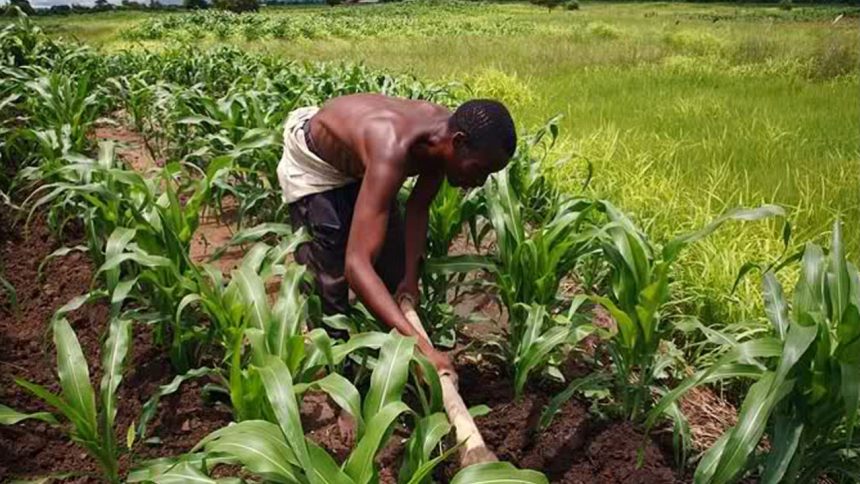Professor Adeolu Ayanwale, an expert in Agricultural Economics at Obafemi Awolowo University, has urged both the federal and state governments to initiate digital training programs for farmers nationwide. This call was made during a capacity development workshop hosted by the Commonwealth of Learning, Canada, Obafemi Awolowo University, and Agricultural and Rural Management Training Institute (ARMTI). Ayanwale emphasized that the lack of technological application in Nigeria’s agricultural sector has significantly hindered its progress. He believes that incorporating digital training is crucial for enhancing and increasing agricultural production.
Digital training, as explained by Ayanwale, involves educating farmers on utilizing digital tools throughout the entire process of their crop’s value chain, including crop production, growth, and marketing. He emphasized the importance of the federal government promoting the adoption of digital devices like phones, radios, and the internet for both production and marketing purposes. This way, farmers can effectively promote and sell their produce through platforms like WhatsApp, Instagram, Facebook, and Twitter, among others.
Ayanwale highlighted that implementing digital training for farmers would significantly enhance their productivity. This, in turn, would contribute to stabilizing food inflation, aligning with the Sustainable Development Goal 1 (SDG) of achieving “zero hunger,” ensuring that no one goes hungry. By participating in these training programs, farmers can produce sufficient food, leading to a decrease in food inflation. Since the workshop series began in March 2023, over 500 train-the-trainers have been intensively trained and equipped to disseminate this knowledge in their respective communities.
The comprehensive training provided covers various aspects of farming, such as planting, growth, preservation, packaging, harvesting, transportation, marketing, and exporting of produce. Additionally, it emphasizes developing a savings culture and acquiring financial support from institutions like the Bank of Agriculture (BoA). Olufemi Oladunni, the executive director at ARMTI, emphasized adherence to training on proper spacing and fertilizer application for vegetable farmers. He suggested avoiding fertilizer application during the rainy season and promoting eco-friendly agricultural practices by utilizing organic manure instead of excessive inorganic fertilizers. This holistic approach aims to empower farmers, enabling them to produce more for their families, neighbors, and the nation at large. Kemi Idowu from the Department of Soil Sciences & Land Resources Management at OAU pointed out that farmers face challenges related to climate change, particularly in managing soil water and fertility.
Idowu encouraged the participants to apply the knowledge gained from the training in various aspects, such as water application methods, nursery management, using plastic pots, and implementing shade and low tent shade techniques for seedling growth. This training enables farmers to identify different types of fertilisers, understand proper application methods, and even create their own compost manure. Opeyemi Olaobaju, one of the workshop participants, expressed gratitude to the organizers and committed to using the acquired skills and provided resources in a responsible and efficient manner.





